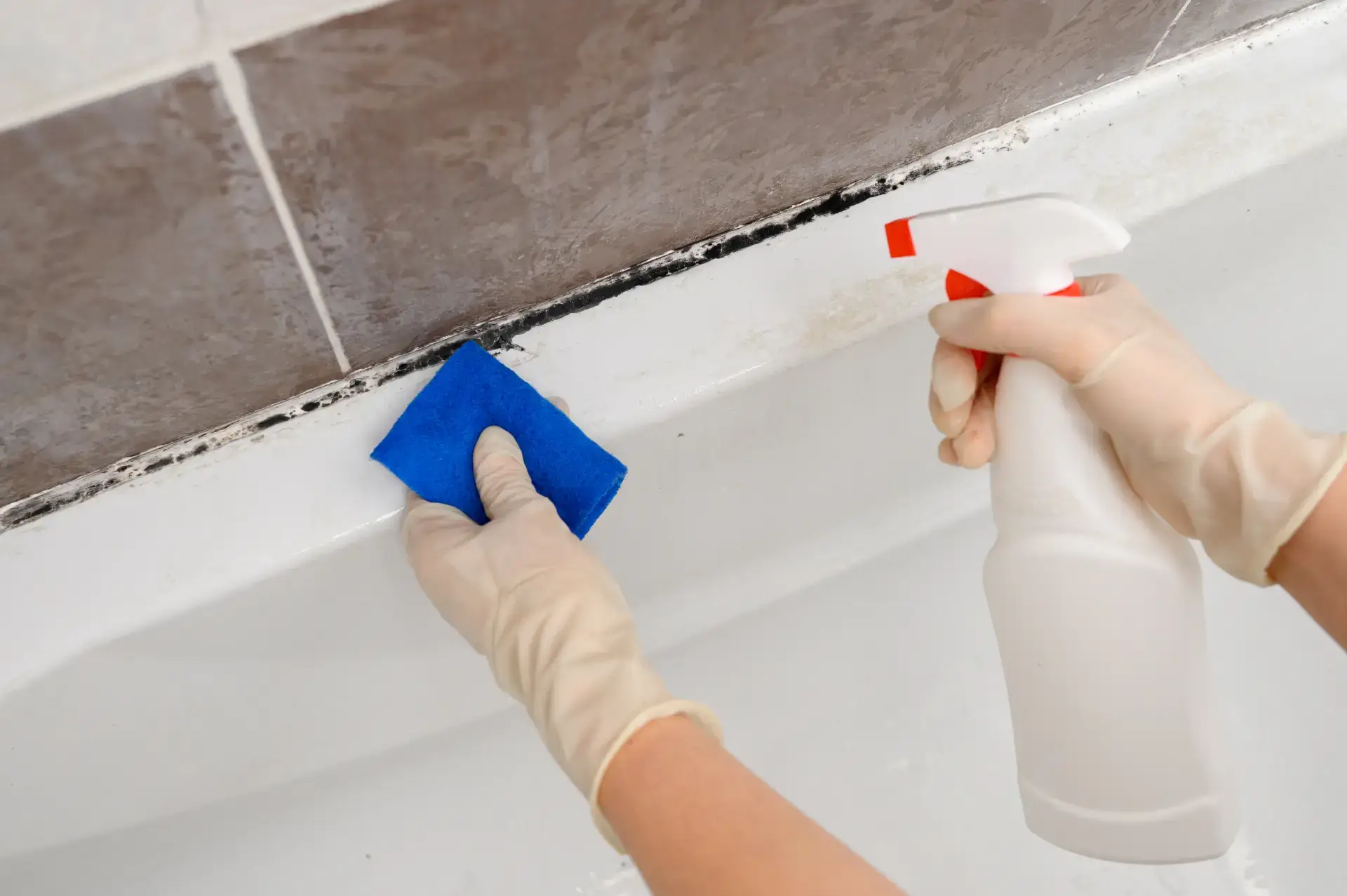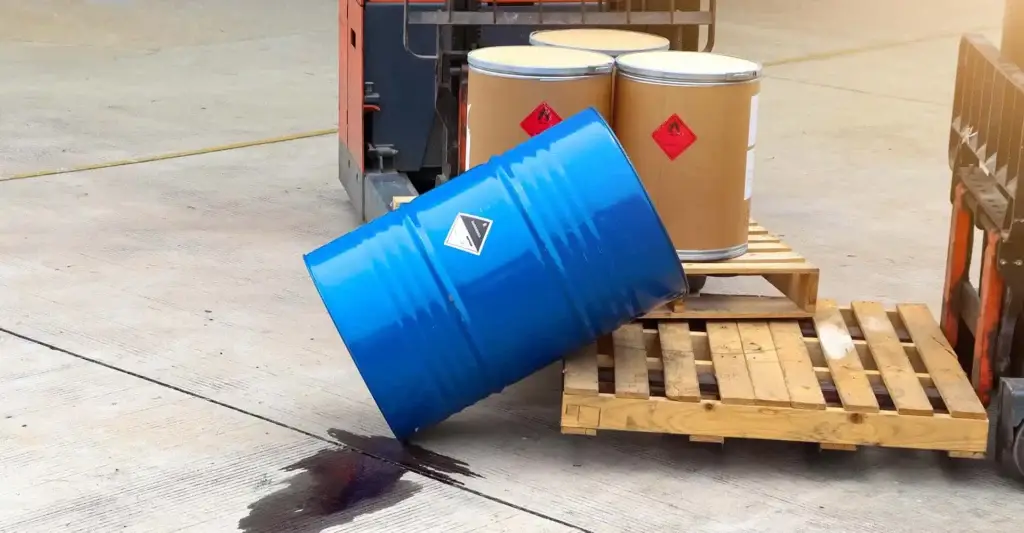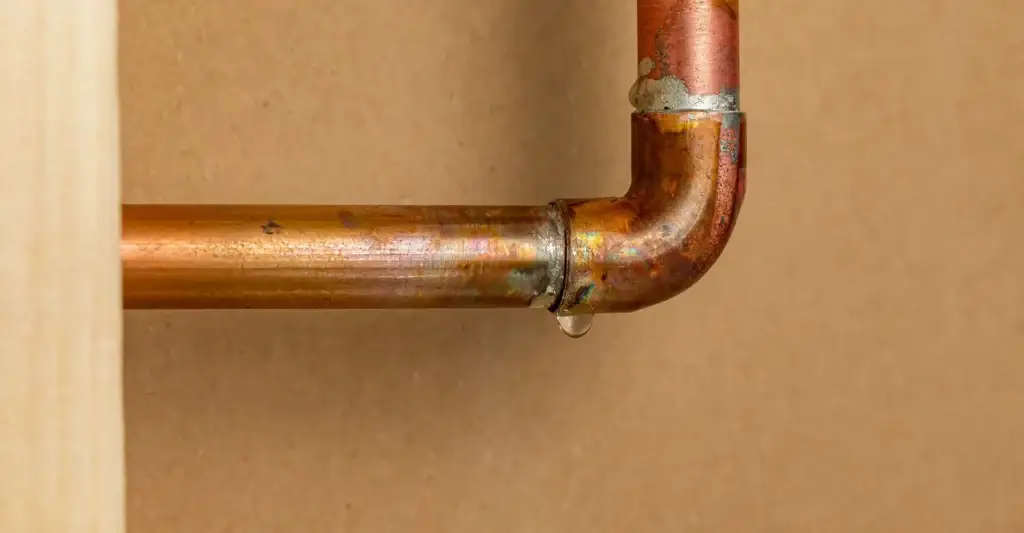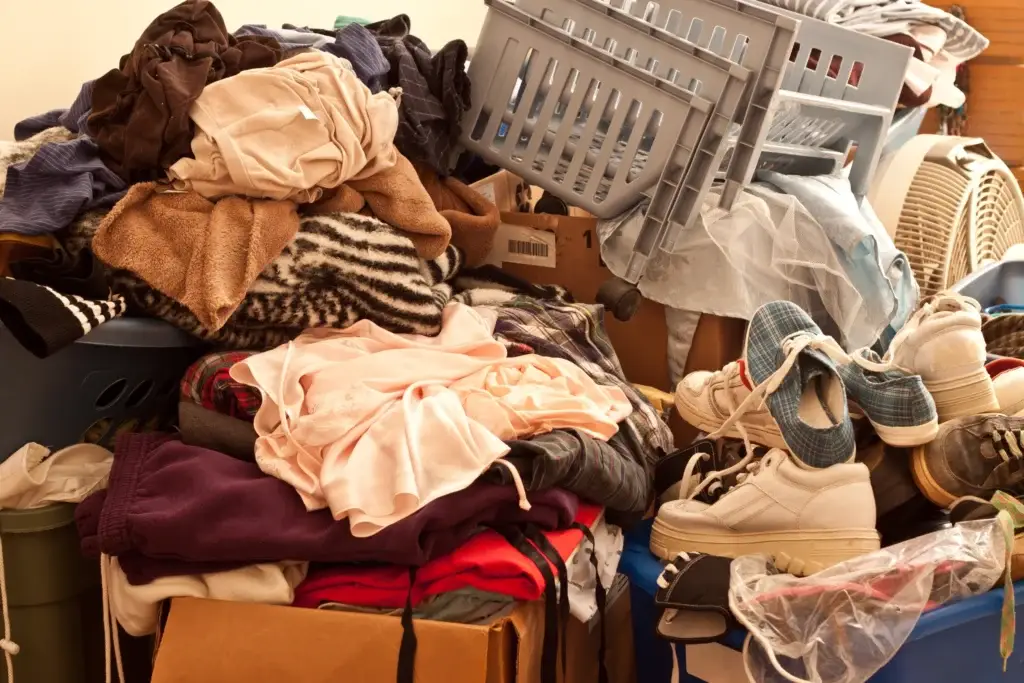It’s a common sight in the UK: that first patch of black or green mould appearing in a damp corner of your bathroom or behind a wardrobe. Your first instinct might be to grab a bottle of spray and a cloth, or maybe even call a domestic cleaner to get rid of it. But is that really enough?
The truth is, there’s a massive difference between cleaning mould and professionally removing it. While a domestic cleaner can get rid of the visible problem, they often can’t address the root cause. This blog will break down the pros and cons of using a domestic cleaner versus a specialist mould removal company, so you can make the right choice for your home and your health.
Skip to:
Domestic cleaners: A quick fix?
What causes mould to grow in the UK?
Mould thrives on moisture. It’s a living organism that spreads through microscopic spores in the air, but it needs a damp environment to take root and grow. Given the UK’s climate and older housing stock, it’s no surprise that mould is so common—one in five UK homes suffers from damp and mould.
The most common causes include:
- Poor ventilation: Especially in humid rooms like kitchens and bathrooms.
- Condensation: When warm, moist air meets a cold surface, it creates water droplets.
- Leaky pipes or roofs: Even a small, slow leak provides a constant source of moisture.
- Flooding: If a property isn’t dried out and treated correctly after a flood, mould will inevitably grow.
Domestic cleaners: A quick fix for mould?
When you see a small patch of mould, a domestic cleaner seems like a simple, budget-friendly solution. They can be great for quick, visual clean-ups.
The pros
- Cost-effective: Domestic cleaners charge much less per hour. For a small patch of mould, this can seem like a good deal.
- Convenient: They can quickly clean up the visible mould on surfaces during a regular cleaning session.
- General maintenance: Regular cleaning helps prevent the build-up of dirt and dust, which can be food for mould.
The cons
- Surface-level treatment: Most domestic cleaners use common off-the-shelf cleaning products, which only remove the surface mould. They can’t destroy the mould’s root system, meaning it will almost always grow back.
- Limited expertise: They lack the specialist knowledge and training in mould remediation. They don’t know how to identify the underlying cause or deal with different types of mould.
- Lack of proper equipment: They don’t have the specialised tools needed for a permanent fix, like HEPA vacuums, ULV foggers, or moisture meters.

Specialist mould removal companies: The long-term solution
For any mould problem that’s more than a few spots on a window sill, a specialist cleaning company is the only real solution. They are professionals who understand the science behind mould growth and know how to stop it for good.
The pros
- Expert assessment: A specialist will conduct a thorough survey to identify the type of mould, the root cause, and the extent of the infestation. They don’t just treat the symptom; they solve the problem.
- Effective, lasting results: Specialists use a comprehensive, multi-stage process. This includes using professional-grade fungicides and advanced equipment to not only remove the visible mould but also eliminate airborne spores and the mould’s deep-seated roots.
- Health and safety: They use the correct Personal Protective Equipment (PPE) and containment strategies to prevent mould spores from spreading to other parts of your property, protecting your health and that of your family.
- Peace of mind: Many specialists, like our team at Ideal Response, offer guarantees and provide detailed, insurance-friendly reports, which can be a huge help if you need to make a claim.
The cons
- Higher upfront cost: A professional mould removal service is more expensive than a domestic cleaner. However, this is because you are paying for a permanent solution, not a temporary one.
- Longer process: The process can take longer because it involves a full assessment, preparation, and comprehensive treatment.
DIY mould cleaning: Is it worth the risk?
DIY mould removal might seem like a good way to save money, but it can be surprisingly dangerous. Scraping or scrubbing mould can release millions of spores into the air, which you can then inhale or transfer to other areas of your home. This can make the problem worse and pose a significant risk to your respiratory health. For anything more than a tiny, surface-level patch, it’s always best to call a professional.
The final verdict: Domestic vs specialist
Here’s the bottom line:
- A domestic cleaner is a good choice for minor, cosmetic cleaning on hard surfaces, such as a few spots on a shower tile.
- A specialist mould removal company, like Ideal Response, is the only choice for any recurring mould, large infestations, black mould, or a problem linked to damp, leaks, or water damage.
Investing in a professional mould remediation service not only gets rid of the visible problem but also protects your health, safeguards your property’s value, and gives you long-lasting peace of mind. It’s a worthwhile investment in your home and your health.
If you’re dealing with a mould problem in your home or business, don’t wait. Contact our certified mould removal experts today for a free consultation and a long-term solution. Alternatively explore the mould removal service we offer.
Need to speak to a specialist urgently? Call 01622 926 505
Frequently asked questions about mould cleaning
How common is mould in UK homes, and why is it a concern?
Mould is a significant issue in the UK; roughly one in three (29%) of the population experiences mould in their homes, with some estimates suggesting up to 6.5 million households are affected. It’s a concern because mould can cause serious health issues (like respiratory problems and allergies) and lead to structural damage to your property if left untreated.
What's the key difference between domestic cleaners and mould removal specialists?
The key difference lies in their approach and capability. Domestic cleaners typically offer surface-level cleaning using off-the-shelf products, which can temporarily remove visible mould but do not address the underlying cause. In contrast, specialist cleaning companies provide comprehensive remediation; they diagnose the root cause of the mould, use specialised equipment (like HEPA filtration and fungicidal solutions), and ensure permanent removal to prevent recurrence.
When is it appropriate to use a domestic cleaner for mould?
A domestic cleaner might be suitable only for very minor, surface-level mould that is purely cosmetic and appears in isolated, easily accessible areas, often due to temporary humidity. For these small, non-recurring patches, a budget-friendly clean might offer a quick visual fix.
When is it essential to call a professional mould remediation company?
You should always call a professional mould remediation company for:
-
Large or widespread mould infestations.
-
Recurring mould problems.
-
The presence of black mould.
-
When mould is causing or suspected of causing structural damage.
-
If occupants are experiencing health issues linked to mould exposure.
What are the health risks associated with mould exposure in the home?
Exposure to mould can trigger or exacerbate various health problems. These include respiratory issues like asthma attacks, bronchitis, and persistent coughing, as well as allergic reactions such as sneezing, runny nose, and itchy eyes. Prolonged exposure can also impact overall well-being.
How much does professional mould removal typically cost in the UK?
The cost of professional mould removal in the UK varies significantly based on severity and area. For small areas, it might range from £200-£500. For medium-sized properties, costs are typically £500-£2,000. Severe or extensive infestations requiring significant work could exceed £2,000 to £10,000+. A professional survey often costs £50-£300 to diagnose the issue accurately.
Why can't domestic cleaners provide a permanent mould removal solution?
Domestic cleaners cannot provide a permanent solution because they lack the specialised knowledge and equipment to identify and address the mould’s underlying cause, such as hidden leaks, ventilation issues, or damp problems. Without tackling the root source, the mould will almost certainly return, leading to recurring problems and wasted effort.

Chris Hedges - Head of Marketing
With over 25 years' experience, Chris is adept at defining and driving strategy, while also enjoying hands-on operational delivery. He believes in an equal blend of creativity and analytical scrutiny, always finding inventive ways to achieve objectives, underpinned by evidence. Chris’s philosophies are simple: don't overcomplicate, always prioritise customer experience, and bend the rules just enough to cut through the noise and drive momentum and growth.





















